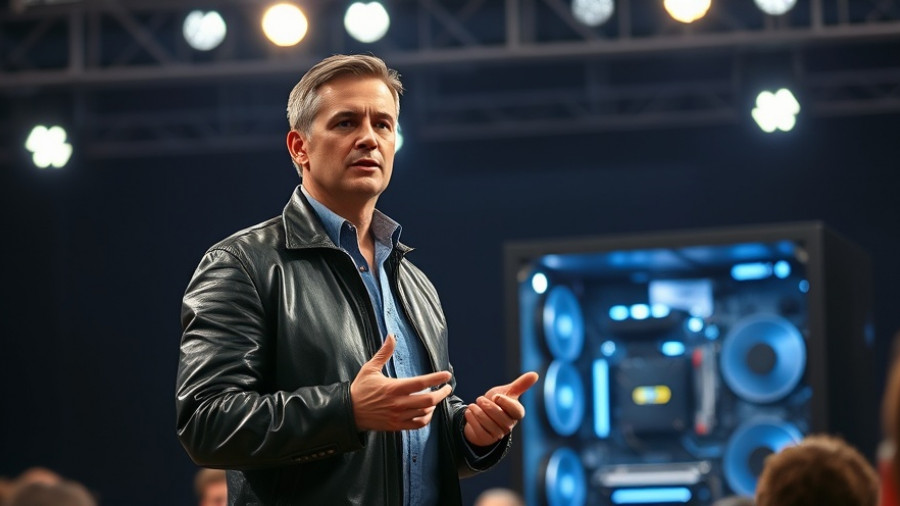
Nvidia's Legal Battle: What You Need to Know
Nvidia, the renowned leader in graphic processing units (GPUs), is being propelled into the legal spotlight as it faces a trial over allegations of trade secret theft from Valeo, a global leader in automotive technology. The trial, which echoes broader concerns about intellectual property rights within the high-stakes tech industry, revolves around claims that Nvidia misappropriated Valeo's proprietary technologies intended for advanced driver assistance systems (ADAS).
The Implications for AI Development
The accusations against Nvidia come during a crucial time when the automotive industry is rapidly transitioning toward automation and AI. Valeo asserts that Nvidia leveraged its confidential materials to gain an unfair advantage in the automotive AI market, specifically in the development of self-driving technology. This trial could set significant precedents for how trade secrets are protected and enforced within sectors increasingly governed by technology and innovation.
Understanding the Legal Landscape
This ongoing case also raises questions about the legal frameworks surrounding trade secrets and patents in the tech industry. Intellectual property (IP) laws are designed to foster innovation by protecting inventors' rights while maintaining fair competition. Yet, in a world where technology rapidly evolves, the lines can often blur, leading to disputes that can stifle or spur innovation.
Possible Outcomes and Broader Industry Impact
Experts suggest that the outcome of the trial could either pit Nvidia against the growing pressure from legal environments that favor IP protection, or it could inspire further innovation and competitive dynamics among major tech firms in uncertain territories. As the trial unfolds, industry stakeholders will watch closely, as its ramifications could reshape how AI companies navigate the legal intricacies of technology transfer and competitive strategy.
Nvidia's Strategy and Industry Insights
Nvidia, celebrated for its pioneering work in AI and high-end graphics, may view this trial as an uphill battle, yet an opportunity to reinforce its commitment to ethical innovation practices. The case presents a unique chance for Nvidia to distinguish itself amidst rising competition not only from traditional rivals but also from new entrants in the burgeoning AI market.
What AI Enthusiasts Should Monitor
As observers, AI enthusiasts should watch this trial closely, as it reflects larger trends in the tech industry. The dialogue around trade secrets is vital; it can inform and educate about how companies protect their innovations while navigating ethical considerations in a competitive landscape. Furthermore, with the upcoming AI regulations from government bodies, the legal outcomes may also guide future policies affecting the broader AI ecosystem.
Looking Ahead: Regulatory Changes on the Horizon
In light of this case and the increasing scrutiny on technology firms, we can expect that regulatory changes will emerge aimed at clarifying the boundaries of competition integrity vs. IP rights. These changes can influence investment strategies and market dynamics, as companies assess risk factors associated with potential legal disputes over trade secrets.
In conclusion, as Nvidia gears up for this trial, industry watchers are keenly aware of its potential to serve as a catalyst for pivotal changes in how technology innovations are cultivated and protected. Keeping an eye on this courtroom drama will undoubtedly provide valuable insights into the future landscape of artificial intelligence and technology competitiveness.
 Add Row
Add Row  Add
Add 




Write A Comment